9 Nights / 10 Days

Arrive Guwahati Airport and met on arrival. Transfer to Landmark Hotel. After lunch visit Kamkhya Temple. Evening river cruise on mighty Brahmaputra River.
After breakfast visit Navagraha Temple - The Navagraha Temple or the temple of the nine celestial bodies is located in the south eastern part of Guwahati, on a hill by name Chitrasala which was built in late 18th century. An earthquake destroyed the temple tower, and it was re-built later. As the name indicates, this temple is dedicated to the nine planets in the solar system. It is a center of astrological and astronomical research.
Sualkuchi - Assam produces three unique varieties of silks, the Golden Muga, the White Pat and the warm Eri. Silk grown all over the state find their way to Sualkuchi. Sualkuchi is one of the world's largest weaving villagers. The entire population here is engaged in weaving exquisite silk fabrics. A renowned center of silk production, particularly known for Muga - the golden silk of Assam, which is not, produced anywhere else in the world.
One can distinctly hear the rhythm of the shuttles of the looms as soon as one enters this village. Sulakuchi, the biggest village in Assam, is situated on the north bank of the mighty Brahmaputra (35 kms from Guwahati).
Hajo - The town Hajo (20 km from Sualkuchi) is sacred place for Hindus, Muslims and Buddhists. The town boasts the Hayagriba Madhava Temple, accessible via a long stairway. Hajo village is renowned for their brass metal work. On return visit to Kamakhya Temple. Overnight in Guwahati.
Drive to Shillong (110 km / 3 hr drive). Check-in Hotel Polo Towers or Royal Heritage-Tripura Castle. After lunch visit Archery Stakes-an unique gambling sport which is held everyday (except Sundays) at 4.00 PM where some 60 odd archers assemble in a small field surrounded by ticket selling booths and small shops selling liquor. At 4.15 PM, the archers begin shooting at a target where they shoot more than thousand arrows in the next four minutes. The archers, ranging in age from boys of twelve to men of seventy plus, hunker down their hunches in a line, 15 yards away from the target. At the signal the air is thick with the "whop" of arrows whizzing like meteors across the field. The officials then count the numbers of arrows that hit the target. The target is a cylindrical reed drum about twenty inches high, mounted on a short bamboo pole. The last two numbers after counting is the winning lottery number. Information is passed across Meghalaya. 980 arrows on target means 80 is the winning number. The Meghalaya Government legalized the archery lottery game in 1982, but according to the local people the game is running for over 100 years. Overnight in Shillong.
Excursion to Mawlynnong (90 km from Shillong) - on the Shillong-Dawki Road, 30 km from Pynursla, is a village of 75 households with a population of 400. A idyllic location, this village epitomizes a standard which all other villages need to aspire to be. Dubbed the cleanest village in India by Discover India Magazine, the primary village school till class V boasts of its 'no dropout' record and the village of 90% literacy. Paved walkways and beautiful flowerbed all along mark the village, with waterfalls, a living root bridge*, hilly rivulets, acacia plantation and an excellent view of the faraway plains of Bangladesh all contribute to the ambience of this village. Farming of betel nut & leaves, broomsticks and pepper along with bee rearing are the primary economic activity of this village and with the village headman himself taking the responsibility of making visitors comfortable, a day in this village gives a insight into the life of the Khasis, the influence of the Church and its metamorphosis.
Living Root Bridge The lower reaches of the southern slopes of the Khasi and Jaintia Hills are humid and warm and are streaked by swift flowing rivers and mountain streams. A specie of rubber tree flourishes alongside these rivers and steams. The tree usually perches on rocks and reaching out to soil for nourishment. Thus, they have adapted themselves well to high soil erosion, caused by these fast flowing rivers and streams. The exposed roots grow strong and reach out over long distance from the tree trunk.
The early War-Khasis had noticed these qualities of these trees and had adapted it to serve their need for bridges to cross-rivers and streams. In order to direct the roots in the desired direction, they use hollowed out areca nut tree trunks. The thin and long tender roots are then passed through the hollowed out areca nut tree trunks, which are positioned as per the requirement of the proposed bridge. The roots start growing towards the directed end. When they reach the other end of the stream or river they are allowed to take root in the soil. Where required, the roots are redirected back to the side of the river or streams where the tree stands. The bridges usually have base spans numbering more than two. There are also two protective railing spans. Stones are used to fill any gaps in the base span roots. Some of these bridges have roots brought down from the tree branches joining the middle of the bridge from the top as support spans. These root bridges are so strong that some of them can carry 50 or more people at a time. These bridges probably take 20 to 25 years to become fully functional. They keep growing in strength by the day. Perhaps their life span is 200 to 300 years after the bridges are well formed. Overnight in Shillong.
Rich, and teeming with diverse variety of flora & fauna, Nameri shares its northern boundary with Pahoa Tiger Reserve of Raunchily Prudish. Together they constitute an area over 1000 sq.km of semi-evergreen, moist deciduous forests with cane and bamboo brakes and narrow strips of open grassland along rivers. This is excellent elephant country and ideal habitat for a host of other animals. In recent years Nameri has become famous for it's avifauna particularly White Winged Duck. Nameri National Park covering an area of about 200 sq. Km is a birder's paradise and more than 300 species of birds have been identified here, four species of Hornbill, an abundance of Hill Mynas, Barbets, babblers, Bulbuls, Plovers, Ibis bills etc.
From a base located at Bhalukpong (20 km from Eco-Camp), WWF-India conducted a recent survey of above ground plant based biodiversity. Research by NBL (North Bank Landscape) team of W.W.F India, has come up with startling results, as indicators point towards the area being one of the richest in the world in PFT (Plant Functional Type) and second only to Sumatra in PFC (Plant Functional Complexity). The area (along with other biodiversity hotspots). Falls in the category of being "one of the richest and most threatened reservoirs of plant and animal life in the world".
Jungle treks conducted by the wildlife department, gives one the opportunity to explore this fascinating habitat on foot. While, trekking, armed forest guards guide you along nature trails through jungles and dry riverbeds. More often than not one may come across wild animals like bison, elephants, deer, wild boar, etc., but sighting of great variety of birds is almost certain. Nameri being mostly dense jungle, locating wildlife, though present, is that much more difficult.
The thrill of rafting (these rafting trips, meant for entire family are essentially enjoyable float trips) along the Jia Bhoroli river, in the heart of nature, also provides an opportunity for additional sightings as you travel along National Park. Rafters may also stretch their legs midway and indulge in a picnic lunch on the riverbank. Overnight at Eco-camp.
Early morning nature trail. Return to camp for breakfast. After breakfast rafting on Jia Bhoroli river). Late afternoon return to camp. Evening drive to Kaziranga National Park (120 kms / 2.5 hrs drive). Check-in Bon Habi or Aranya Lodge.
Kaziranga National Park - a world heritage site, one of the gems of Indian wildlife conservation and home to 65% of the world's population of 'Rhinoceros (Unicorns)', the great one horned rhinoceros. Herds of barasingha and wild buffalo are seen in the marshes. Rhino browse unconcernedly as visitors pass by and occasional her of elephants or wild boar is also sighted. The grasslands are raptor country and the crested serpent eagle, Pallas fishing eagles and grey-headed fishing eagles can be seen circling over the marshes.
Early morning elephant safari (1st ride: 5.30 am to 6.30 am or 2nd ride: 6.30 am to 7.30 am - wake-up call half an hour before ride). Return to lodge for breakfast. After breakfast Jeep safari. Return to lodge for lunch. After lunch Jeep safari. Overnight at Kazirnga.
Jeep Safaris in the park. Overnight in Kaziranga (all accommodations are outside the park).
After breakfast drive to Guwahati Airport (250 kms / 5 hrs drive) to connect flight to Bagdogra / Kolkata / New Delhi / Mumbai. TOUR ENDS.
OPTIONAL
Day 11
The land of mesmerizing mountains, breathtaking beaches, fabulous forts, monuments, & palaces, modern and historical buildings- India is haven for all travel enthusiasts. As much as the country is beautiful, so are its people. Here, people with different cultures and languages reside in complete harmony. Whether you are a spiritually inclined person, an adventure freak, a nature lover, a die-hard romantic, or all in one, you must explore this splendid country to experience the mystical charm it has. With an aim to act as a professional Travel Partner to all travelers in India, Expert Tour Planners has come up with comprehensive Travel Solutions.
We also provide Travel Services in Nepal and Bhutan. We develop customized Travel Solutions, incorporating all the minute requirements of the clients. The expertise of team members who have more than 17 years of experience in the Tour & Travel Industry has helped us emerge as a leader in the Tour & Travel Sector. With folded hands and utmost happiness, we greet all the visitors to India as we say- Athithi Devo Bhava (Guest is similar to God). Read More...
 5D/4N
5D/4N
 14D/13N
14D/13N
Kolkata - Bagdogra - Gangtok - Kalimpong - Darjeeling - Kathmandu - Chitwan
 20D/19N
20D/19N
New Delhi - Bagdogra - Darjeeling - Gangtok - Puri - Jeypore - Bhubaneswar
 6D/5N
6D/5N
 15D/14N
15D/14N
Kolkata - Guwahati - Tawang - Bomdila - Itanagar - Dibrugarh
 19D/18N
19D/18N
New Delhi - Guwahati - Tezpur - Itanagar - Dibrugarh - Sibsagar - Jorhat - Kazirang..
 12D/11N
12D/11N
 20D/19N
20D/19N
North - Central & South India Tour
New Delhi - Agra - Fatehpur Sikri - Jaipur - Kumarakom - Alleppey - Goa City - Udai..
 15D/14N
15D/14N
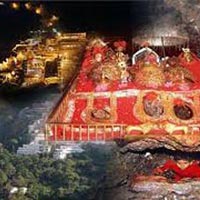 10D/9N
10D/9N
Srinagar - Anantnag - Patnitop - Jammu - Baramulla
 10D/9N
10D/9N
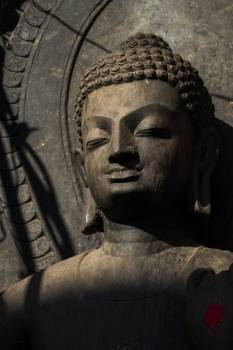 10D/9N
10D/9N
New Delhi - Varanasi - Bodhgaya - Rajgir - Nalanda - Patna - Vaishali - Kushinagar ..
 10D/9N
10D/9N
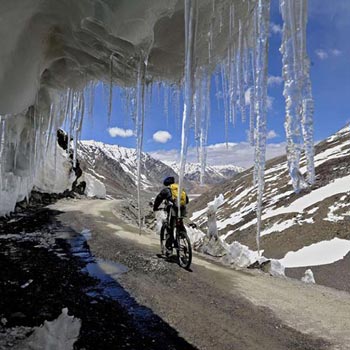 10D/9N
10D/9N
Kinnaur - Kaza - Spiti Romantic Package
Chandigarh City - Shimla - Kinnaur - Kaza - Digboi
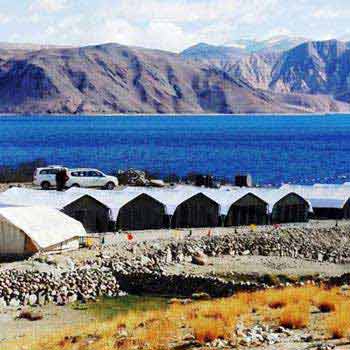 10D/9N
10D/9N
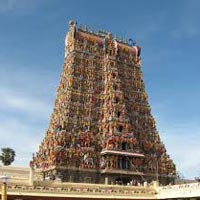 10D/9N
10D/9N
South India - Kerala & Tamil nadu- 9 N/1..
Kovalam - Munnar - Alleppey - Madurai - Kochi - Kumarakom Thekkady
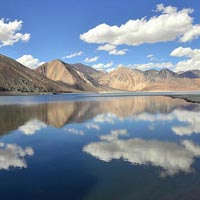 10D/9N
10D/9N
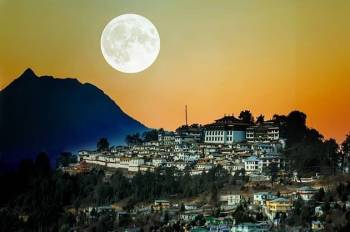 10D/9N
10D/9N
Tawang Kaziranga Shillong Tour
Guwahati - Shillong - Tawang - Kaziranga - Cherrapunji
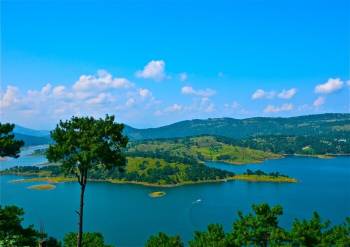 6D/5N
6D/5N
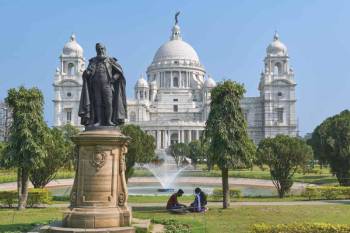 7D/6N
7D/6N
6 Nights - 7 Days West Bengal Tour From ..
Puri - Kolkata - Bhubaneswar - South 24 Parganas
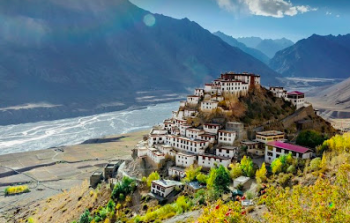 7D/6N
7D/6N
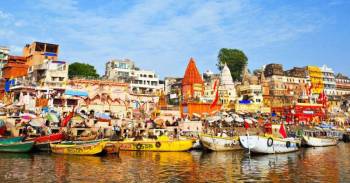 12D/11N
12D/11N
Uttar Pradesh Tour Package 11 Night - 12..
Varanasi - Bodhgaya - Puri - Kolkata - Ayodhya
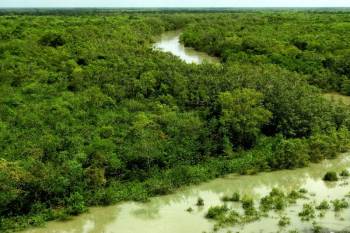 9D/8N
9D/8N
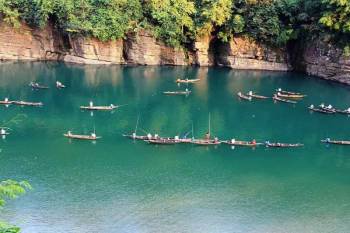 8D/7N
8D/7N
8Days Kaziranga - Shillong - Cherrapunji..
Guwahati - Shillong - Cherrapunji - Kaziranga
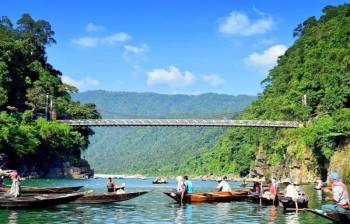 8D/7N
8D/7N
7 Night And 8 Days Assam Tour Package - 2
Guwahati - Shillong - Kaziranga - Dawki
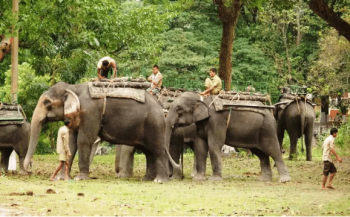 8D/7N
8D/7N
7 Night And 8 Days Assam Tour Package - 1
Shillong - Cherrapunji - Kaziranga - Guwahati
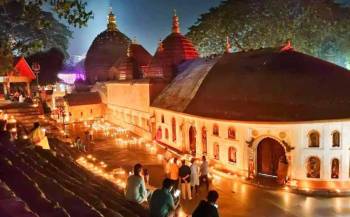 8D/7N
8D/7N
8 Days Guwahati - Kaziranga - Shillong -..
Guwahati - Shillong - Kaziranga - Dawki